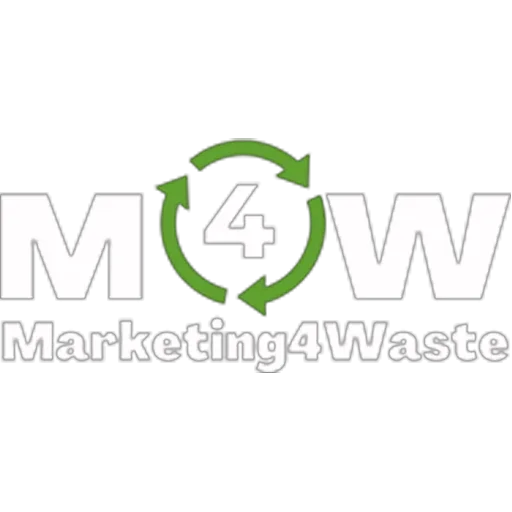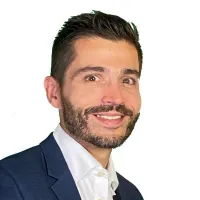Increase the Revenues of Your Waste Company With the Tips Shared in Our Blog Articles

Tell me a Story and I’ll become your Client
Discover why stories are one of the most effective marketing tools for establishing a connection between you and your potential clients.
People love stories.
And you know that because you probably remember your grandmother telling you a story before you went to bed.
You may recall that in your first years of school, the majority of the teachings, particularly in grammar, were entirely based on stories.
That approach is not unique to our century, but it is a component of humanity’s educational system. Humans have used stories to impart meaning to everything around us, from shared norms to lived experiences.
From the ancient myth of Utnapishtim (Ancient Mesopotamian between 2700 B.C. and 600 B.C.), to the stories of the ancient Greeks like Aesop (600 B.C.), to the actual stories, each story contains a lesson.
A lesson that the reader can easily grasp and that is well represented by a practical approach and simple language.
That’s the power.
Indeed, if a picture is worth a thousand words, a story can be invaluable in creating an emotional bond that keeps your potential client riveted and listening.
Also if you work in waste management.
In reality, the issue isn’t the field itself, but the story you want to tell. As a result, it’s critical to craft a story that sparks human interest rather than one that simply explains what you’re doing without engaging your readers.
Do you recall the last time you attended a convention?
It doesn’t matter if it was online or offline.
I’m pretty sure that the speaker opened the meeting telling you a story. It was most likely a story about his/her family or the situation in which he/she lived that inspired him/her to become active in the field, in the community, or in politics.
He/she used the story to capture your attention and to establish an emotional bond between himself/herself and the the listeners in the room. And it’s because of the story that he/she has your attention and interest in telling you the rest of the story.
In fact, it wasn’t until the end of the story that he/she began to develop the topic of the speech.
That is an example of the power of storytelling.
I know what you’re thinking now: “Which story can I tell?” “A story about waste?”
Right question, give me a few lines and I’ll tell you.
In fact, what matters is that stories have lessons to teach, experiences to share, and endings that can excite, surprise, or elicit emotion.
That, my friends, is the most difficult part.
Indeed, it is common for people to begin telling stories with goals in mind rather than the importance of involving the emotions of the readers or listeners.
As a result, you must first consider your target audience and become familiar with their fears, doubts, and problems. Your story must touch on these points, and when it does, you must guide the conversation through these emotions, explaining why your target audience is experiencing them.
You could tell your audience about your experience in a similar situation, if you’ve had one, and how you felt when you solved it. If you haven’t had any experience, you could talk about a client’s experience and how it felt.
That is your story’s first goal: to create an environment in which your readers or listeners can identify themselves.
To obtain this first goal you need 3 important things:
— Good knowledge of your target audience;
— Good knowledge of your market and its problems;
— Good Copywriting.
The first two items are critical to your company’s success. Your business will stagnate unless you understand your target audience, the market, and its problems.
Also, if you sell a commodity, such as waste collection. Yes, I referred to waste collection as a commodity because that is the common approach that most waste management companies take.
Consider what would happen if you became aware of the waste-related issues that residents in your area (your clients) are dealing with. Not only can you provide better solutions, but you can also achieve better results.
For example, if clients are not properly segregating their waste, there is a communication problem about the benefits of separating plastics from paper and organics from non-organic waste.
That is an opportunity for you to organize dedicated meetings in which your story will explain which benefits the citizens will receive by allowing you to collect well-segregated waste.
At the same time, market knowledge provides you with an overview of how your competitors operate and how their services are perceived by the market. Not only does it allow you to see if there are any niches that aren’t being served, but it also allows you to see if there are any that aren’t being served.
For example, if your competitors prefer to collect unsegregated waste because they make more money moving all of the waste directly to the incineration plant to produce energy, your story will discuss the world’s current shortages and how people solved them in the past. This provides you with the opportunity to identify a new niche for collection and treatment in the area.
But to create the right content you need the third thing.
That’s like the secret ingredient in the cake your grandmother made for you every time you saw her. Nothing magical, but something special that has the potential to change the final outcome.
Your story will be completely different if written in good copywriting, just as your grandmother’s cake was completely different from the same cake created by your mother (she didn’t know the secret).
That’s the trickiest part and also the most effective in terms of outcomes.
In fact, there is a common thread running through the stories of the most successful books: great writers with a wealth of experience are at the helm.
They, too, are human and can make mistakes.
We are all humans.
What matters is that your story, written with good copy, can change the results of your collection, build trust in your company, validate your brand, support your mission, and, most importantly, involve your potential clients.
And, if you’re consistent in what you’re doing, it’s difficult to break the bond you’ve formed with your clients.
As a result, I’d like to end this week’s newsletter with a quote from Kathy Lavine, formerly one of QVC’s top salespeople, quoting her book “It’s Better to Laugh”:
“I realized that selling is a matter of capturing people’s attention and holding it with a good story.”
That, in my opinion, is the best definition of sales. In addition, if you work in waste management, you are in sales.
As previously stated, it is a commodity, but it is possible to structure a marketing process that will increase your sales by involving more citizens and businesses.
If you want to learn more about how to do it, click HERE to book a discovery call with me.
I’ll be waiting for you.
Sam


© 2025 Marketing4waste - All Rights Reserved,
Marketing4Waste is a brand of MiM MarketingInterimManagers LLC
+1 801 804 5730

